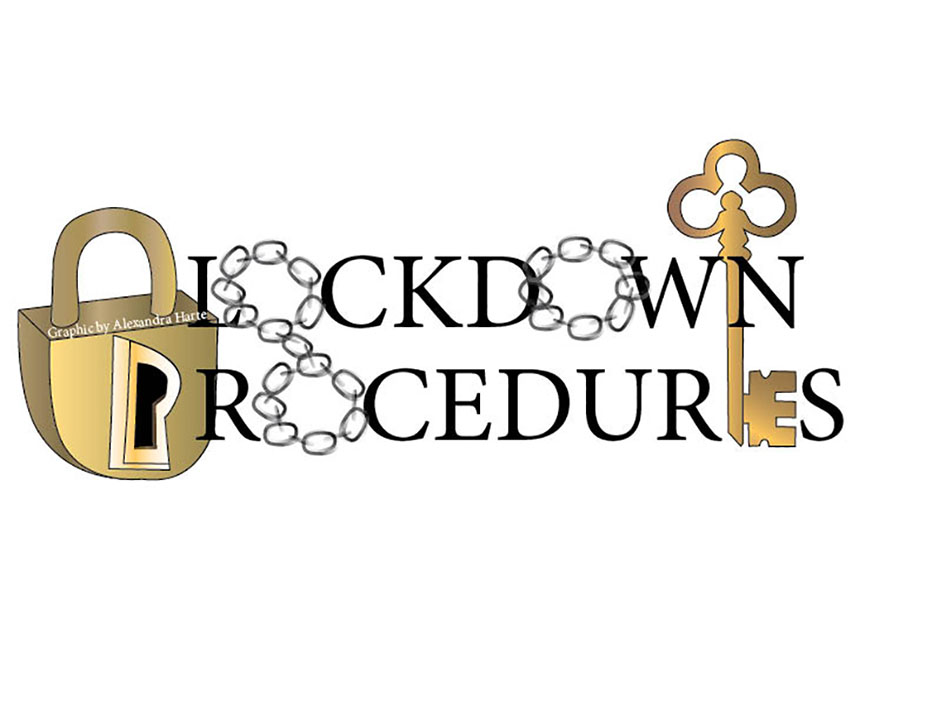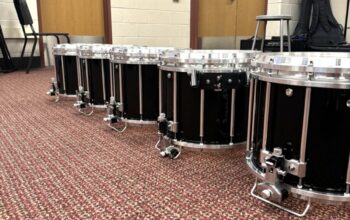Skye Curren, Reporter
@esccourant
As the generation that grew up with Columbine and Sandy Hook, most students have been doing lockdown drills since the first day of Kindergarten. Students have practiced drills in case of an active shooter month after month, year after year; but not everyone believes that the current lockdown procedures will work. Right now, changes are being considered by the Crisis Advisory Board as new alternatives to the current lockdown procedures.
Assistant Principal David Gusitsch, a current member of the Crisis Advisory Board and a representative for NCHS, said, “We want to do it in a thoughtful manner, where it’s not something that is reactionary. We want to make sure that it is an appropriate fit for our school community and the district.”
However, changes are being introduced. “Some administrators have gone through ALICE training, which is; alert, lockdown, inform, counter, and evacuate,” Mr. Gusitsch said. “There’s no one way to plan for these tragic incidents. However, we do have conversations on alternative options. The district is looking at different training protocols, so we may be seeing some adjustments in the future.”
Mr. Gusitsch also points out that the district is taking a critical look at the school’s current lockdown procedures after the recent school shooting at Parkland. “We are always taking a look at our policies, reviewing things that go on, whether it be locally, regionally, or nationally,” he said. “One of the criticisms of Parkland was that people were not taking it as seriously. And I’m not criticising them by any means, I want that to be very clear. But what are the necessary steps we need to take to make sure we are serving our community?”
 One such concern that emerged after Parkland is the communication of drills. In the Parkland shooting, for example, the active shooter first pulled the fire alarm to draw students out, therefore delaying the lockdown procedure. Mr. Gusitsch says that in incidents like this, communication is key. “We always keep communication our front line. And that’s something that we’re trying to determine- how we can best communicate with the community during an emergency situation,” he said. “So between our representatives on the safety team here in the school, and the people that have access to walkie talkies, we try to ensure that we get as much useful information out to everybody in real time so we can make decisions that are going to keep everybody safe.” Recently, the administration has also decided to call practice lockdowns ‘practice,’ instead of drills, to help clarify the nature of the drill.
One such concern that emerged after Parkland is the communication of drills. In the Parkland shooting, for example, the active shooter first pulled the fire alarm to draw students out, therefore delaying the lockdown procedure. Mr. Gusitsch says that in incidents like this, communication is key. “We always keep communication our front line. And that’s something that we’re trying to determine- how we can best communicate with the community during an emergency situation,” he said. “So between our representatives on the safety team here in the school, and the people that have access to walkie talkies, we try to ensure that we get as much useful information out to everybody in real time so we can make decisions that are going to keep everybody safe.” Recently, the administration has also decided to call practice lockdowns ‘practice,’ instead of drills, to help clarify the nature of the drill.
Another concern emerging after Parkland is the idea that a former student, who would have an understanding of the school’s lockdown procedures, would be able to more easily manipulate the system. “We want to be careful to maintain a nurturing environment, and we want to consider how we can prevent and avoid someone wanting to do something like that with an emphasis on positive school climate,” Mr. Gusitsch said.
Mr. Gusitsch does acknowledge, however, that everything is case by case, so it is impossible to know what to expect. “We have our safety protocols in place, ensuring the building is locked with minimum access ways,” he said. “But in terms of prevention? It’s tough to say. I’d like to say that everything we have in place would stop someone from coming in and doing that- but, you know, we don’t know what the next person will be planning to do.”
It is also important to remember that students have a active role to play in the safety of the school. “It’s hard to tell someone ‘I’m not going to open the door for you,’” he said. “But security is only as good as everybody who chooses to participate in the system.”




